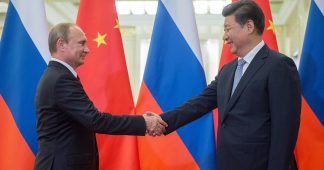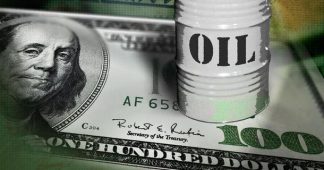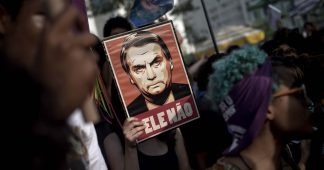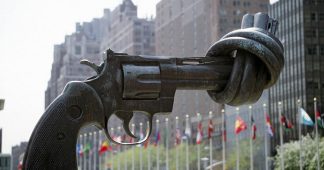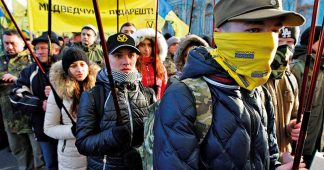A paper delivered to the Moscow academic economic forum (MAEF)
by Dr. Leo Gabriel
from the Institute for Intercultural Research and Cooperation in Vienna, Austria
It was in 2004 when the war in Iraq was at its peak, that the renown political scientist Emanuel Wallerstein announced at the World Social Forum in Mumbai, India, a public discussion under the surprising title: „Is the neoliberal transformation dead?“ We, the members o f the International Council of the WSF were shocked, because this announcement touched the raison d´etre, the roots of the whole event where for the third time more than one hundred thousand activists from all continents had come together in order to exchange alternative concepts and strategies to combat neoliberalism.
What Wallerstein really meant was, that with the war in Iraq the US-Empire had crossed its red line which consisted to gain the world’s most valuable resources through a sort of economic dictatorship, whereas now George W. Bush used direct military action in order to get hold of these resources – be it in Iraq, Iran, in Africa or Latin America.
I had to think of this anecdote when several outstanding economists were highlighting the fact that we should consider political economy as being part of a united, interdisciplinary methodology of the social sciences as a whole, including sociology, political science, social anthropology, ecology etc. It was said that we should use modern economics as only one of the tools to counteract the market fundamentalism which gave rise since the era of Ronald Reagan, Margaret Thatcher and Gorbatchev to neoliberal transformation. What we did not talk about was the fact that our political enemies had discovered that a long time before. By different from us they also included military strategies as a tool to implement their economic goals and vice versa.
Is neoliberalisme dead – just because we are facing a period which considers increasingly military action as a legitimate means to capture oil, gas, coal, gold and other minerals? The answer is yes and no.
NO, because it is still the transnational mining companies which execute the renewed power structures in the Middle East and elsewhere; and YES, because after the failures of the war mongers in East and West it is again the armies who guarantee nowadays the multi billionaire capital flow to and from the countries who possess these valuable goods.
However what we can say is that once again wars are becoming the prolongation of postmodern superpower politics, as Clausewitz would say. The only difference to former times is that – thanks to facebook and google – nowadays there is a symbolic value in it capable to transport fake news within a couple of minutes around the globe. And even if the real objective of these military actions is to pursue an economic goal the overarching structure is increasingly guided by the generals and not by politicians and businessmen.
You can take any hotspots which are existing nowadays around the world, be it North Korea or Palestine, Syria or Venezuela, the Ukrainian Maidan or the Egyptian Arab Spring it is not the politicians whose role is reduced to symbolic figureheads, but the militaries and secret services who are the real directors of this bloody world circus. Its them and not the more or less democratically elected presidents who represent the real dangers for world peace.
If we ask ourselves what is the role of economy in all of this mess we are in, we will discover that the dialectics also works the other way round : because instead of acting according to the laws of offer and demand or the rules of monopoly capitalism, like we learned in the textbooks of political economies, economy itself is increasingly becoming a tool for military action. Never before in history economic sanctions be they directed against Russia, Syria, Venezuela or Nicaragua, had been used quite frequently as an arm for what Trump calls « system change » as nowadays.
What is often forgotten in this postmodern ways of waging so called economic wars is that the real victims of these sanctions mostly are the people, the civil society and not the political leaders against whom the arms of sanctions are directed. It is true that this has happened many times before, like in the siege of Leningrad during World War II or at the very beginning of the war against Iraq in the so called « food for oil » campaign.
But whilst before these lethal instruments have been used before in the context of an openly declared military war-scenario, today these sanctions directed by the militaries and their political allies are being used INSTEAD of military actions under the wrong supposition that the entire population will turn against their leadership.
I have been following this cruel strategy very closely in Venezuela where the US since 2015 put heavy sanctions against the population by taking advantage of the fact that Venezuela produces very few goods on its own, because 93 percent of the national revenue still comes from the production of oil, an oil which is so heavy that it needs to be mixed with other substances that are not available in the country.
The United States and their European allies took advantage of this dependency on the outside world by blocking the access of vital goods on the one hand and the capital flow on the other, causing extreme poverty among the civilian population. As a consequence of this the infant mortality, which had decreased from more that 50 per 1000 babies to less that 20, all of a sudden jumped to more than 80. There is a statistics that shows that every Venezuelan has lost 8 kilos of weight in this last year because of food shortages and that 40 000 people got killed because of the lack of medicines.
If we want to find a word for this way of killing innocent people without arms just because they happen to be in a spot where an economic warfare is being waged, we need not search for a long time in the dictionaries. It is called TERRORISM and as any other form of terrorism it should be persecuted as a crime against humanity.
Therefore let us get together as social scientists who we are in order to defend our professions. We should not allow any longer that economy is being used for a warfare against entire populations. In this sense we are like medical doctors who swore the Hippocratic oath that they never will use their skill to put in danger human lives.
Therefore I propose to sign a declaration which condemns very strongly the politics of economic sanctions against entire countries – as a form of resistance and a way to protect our profession against the war mongers of the world we are living in.
